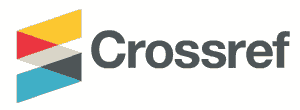Publication Ethics
The International Journal of Electrical, Computer, and Biomedical Engineering (IJECBE) is committed to upholding the highest standards of publication ethics and integrity. This statement outlines the ethical responsibilities of all parties involved in the publication process: the authors, the editors, the reviewers, and the publisher.
1. Duties of Editors
-
Publication Decisions: The Editor-in-Chief and the editorial board are solely responsible for deciding which submitted manuscripts will be published. This decision is based on the manuscript's academic merit, originality, clarity, and relevance to the journal's scope. The decision-making process is guided by reviewer feedback and must comply with legal requirements regarding copyright infringement and plagiarism.
-
Fair Play: Manuscripts will be evaluated for their intellectual content without regard to the author's race, gender, sexual orientation, religious belief, ethnic origin, citizenship, or political philosophy.
-
Confidentiality: The editor and editorial staff must not disclose any information about a submitted manuscript to anyone other than the corresponding author, reviewers, potential reviewers, and the publisher, as appropriate.
-
Disclosure and Conflicts of Interest: Editors and editorial board members will not use unpublished information from a submitted manuscript for their own research without the express written consent of the author. They will recuse themselves from handling manuscripts where they have conflicts of interest arising from competitive, collaborative, or other relationships with any of the authors or institutions connected to the paper.
-
Handling Allegations of Misconduct: The journal will investigate all allegations of publication misconduct, even those that come to light years after publication. Following COPE guidelines, we will take appropriate steps, which may include issuing corrections, retractions, or expressions of concern.
2. Duties of Reviewers
-
Contribution to Editorial Decisions: Peer review is a critical component of scholarly publishing. Reviewers' expert feedback assists the editor in making publication decisions and helps authors improve their manuscripts.
-
Promptness: Any selected reviewer who feels unqualified to review a manuscript or knows that a prompt review will be impossible should notify the editor immediately and decline the review invitation.
-
Confidentiality: Manuscripts received for review are confidential documents and must not be shown to or discussed with others unless authorized by the Editor-in-Chief.
-
Standards of Objectivity: Reviews must be conducted objectively and constructively. Personal criticism of the author is inappropriate. Reviewers should express their views clearly with supporting arguments.
-
Acknowledgement of Sources: Reviewers should identify relevant published work that has not been cited by the authors. They should also notify the editor of any substantial similarity or overlap between the manuscript under consideration and any other published work of which they have personal knowledge.
-
Disclosure and Conflict of Interest: Privileged information or ideas obtained through peer review must be kept confidential and not used for personal advantage. Reviewers must decline to review manuscripts in which they have a conflict of interest.
3. Duties of Authors
-
Reporting Standards: Authors of original research must present an accurate account of the work performed and an objective discussion of its significance. The paper should contain sufficient detail and references to permit others to replicate the work. Fraudulent or knowingly inaccurate statements are unethical and unacceptable.
-
Data Availability and Retention: Authors may be asked to provide the raw data supporting their paper for editorial review. Authors are required to include a Data Availability Statement in their manuscript and should be prepared to make the data publicly accessible where feasible.
-
Originality and Plagiarism: Authors must ensure that their work is entirely original. If the work and/or words of others have been used, this must be appropriately cited or quoted. IJECBE maintains a zero-tolerance policy for plagiarism. All submissions are screened using plagiarism detection software (e.g., Turnitin). Manuscripts found to contain plagiarism will be rejected, and if discovered post-publication, the article will be retracted.
-
Multiple or Concurrent Publication: Submitting the same manuscript to more than one journal concurrently is unethical publishing behavior and is unacceptable. Posting a manuscript to a recognized preprint server does not constitute prior publication.
-
Authorship and Contributorship: Authorship should be limited to those who have made a significant contribution to the conception, design, execution, or interpretation of the study. All significant contributors should be listed as co-authors. The corresponding author is responsible for ensuring that all co-authors have approved the final version of the paper and have agreed to its submission for publication.
-
Ethical Oversight: For research involving human or animal subjects, authors must include a statement confirming that the study was approved by the relevant institutional review board (IRB) or ethics committee and was conducted according to all applicable guidelines (e.g., Declaration of Helsinki).
-
Disclosure and Conflicts of Interest: All authors must disclose any financial or other substantive conflicts of interest that might be construed to influence the results or interpretation of their manuscript. All sources of financial support for the project must be disclosed.
-
Fundamental Errors in Published Works: If an author discovers a significant error or inaccuracy in their own published work, it is their obligation to promptly notify the journal editor and cooperate fully to correct or retract the paper. IJECBE provides clear mechanisms for post-publication corrections, retractions, and expressions of concern, guided by COPE's recommendations.





